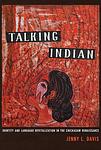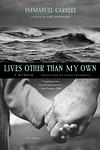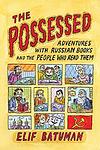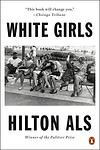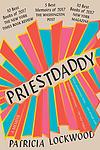The Greatest "Nonfiction, Fiction, Social & Cultural Fiction" Books Since 1900
Click to learn how this list is calculated.
This list represents a comprehensive and trusted collection of the greatest books. Developed through a specialized algorithm, it brings together 300 'best of' book lists to form a definitive guide to the world's most acclaimed books. For those interested in how these books are chosen, additional details can be found on the rankings page.
Genres
Social & Cultural Fiction is a literary category that encompasses novels and stories that delve into the complexities of society and culture, exploring themes such as class, race, gender, and identity within specific social contexts. These narratives often provide a lens through which readers can examine the intricacies of human relationships and the impact of cultural norms and societal structures on individuals and communities. By offering a fictional yet reflective portrayal of real-world social dynamics, this genre invites readers to gain a deeper understanding of the diverse experiences that shape our world. Authors in this category frequently use their characters and settings to comment on contemporary issues, challenge prevailing ideologies, and provoke thought about the possibility of social change, making Social & Cultural Fiction a powerful tool for empathy and a mirror for the ever-evolving human condition.
Countries
Date Range
Reading Statistics
Click the button below to see how many of these books you've read!
Download
If you're interested in downloading this list as a CSV file for use in a spreadsheet application, you can easily do so by clicking the button below. Please note that to ensure a manageable file size and faster download, the CSV will include details for only the first 500 books.
Download-
1. The Emigrants by Winfried Georg Sebald
"The Emigrants" is a novel that explores the experiences and memories of four different emigrants, each with a unique and complex history. The narrative primarily focuses on the psychological impact of displacement and the haunting nature of the past. The author delves deep into their lives, revealing their struggles with identity, loss, and the persistent influence of their roots. The narrative is interwoven with historical events, photographs, and other documents, creating a rich tapestry that blurs the line between fact and fiction.
-
2. What Is the What by Dave Eggers
The novel is a fictionalized account of a real-life Sudanese refugee, Valentino Achak Deng, who was forced to flee from his village during the Second Sudanese Civil War. The story follows his harrowing journey as a child through Ethiopia and Kenya, his life in various refugee camps, and his eventual resettlement in the United States. The book explores themes of survival, identity, and the power of storytelling, while shedding light on the tragic history and ongoing humanitarian crisis in Sudan.
-
3. Wittgenstein's Nephew by Thomas Bernhard
"Wittgenstein's Nephew" is a semi-autobiographical novel that explores the friendship between the narrator and his friend Paul, who is the nephew of the famous philosopher Ludwig Wittgenstein. The story takes place in Vienna and is set against the backdrop of the Austrian mental health system. The novel delves into themes of sanity, insanity, and the fine line that separates the two, while also offering a critique of Austrian society. It is a meditation on the nature of illness, both physical and mental, and the impact it has on personal relationships and one's perception of the world.
-
4. The Land Of Little Rain by Mary Austin
This book is a classic of American nature writing, providing a lyrical and insightful look at the life and landscape of the American Southwest, particularly the Mojave Desert region. Through a series of sketches, the author explores the flora, fauna, and human inhabitants of this arid region with a keen eye for detail and a deep appreciation for the harsh beauty and resilience of the desert. The work is celebrated for its poetic prose and its evocative portrayal of the relationship between the land and its inhabitants, both human and non-human, as they adapt to the challenges of an unforgiving environment.
-
5. Guests Of The Sheik by Elizabeth Warnock Fernea
The book is an autobiographical account of a young American woman's experience living in a small Iraqi village in the late 1950s. As the wife of an anthropologist, she immerses herself in the local culture, particularly the lives of the women, navigating the complexities of gender roles, traditions, and the veil. The narrative offers an intimate glimpse into the domestic lives, social customs, and familial bonds of the villagers, while also reflecting on the author's own cultural assumptions and the process of cross-cultural understanding. Through her journey, the author gains a deeper appreciation for the community's way of life and confronts the challenges of being an outsider in a tightly-knit society.
-
6. The Moccasin Maker by E. Pauline Johnson
"The Moccasin Maker" is a collection of short stories and essays that delve into the lives and experiences of Indigenous people at the turn of the 20th century. Through a blend of fiction and autobiographical elements, the work explores themes of identity, cultural conflict, and the impact of colonization on Indigenous communities in Canada. The author, herself of mixed heritage, provides a nuanced portrayal of the struggles and resilience of her characters, often challenging the prevailing stereotypes and offering a unique perspective on the complexities of living between two worlds. The stories are notable for their rich characterizations and the author's lyrical prose, which captures the beauty and sorrow of the cultural landscape she describes.
-
7. Women Of The Shadows by Ann Cornelisen
"Women of the Shadows" is a poignant exploration of the lives of five Italian women in the impoverished region of southern Italy during the mid-20th century. The book delves into the personal narratives of these women, revealing the harsh realities and societal expectations they face. Through intimate portraits, the author uncovers the strength and resilience of these women as they navigate a world of limited opportunities, traditional gender roles, and the struggle for self-determination. The work serves as both a testament to the enduring spirit of these individuals and a critique of the cultural and economic conditions that shape their lives.
-
8. L'étrange Destin De Wangrin by Amadou Hampâté Bâ
"L'étrange Destin De Wangrin" by "Amadou Hampâté Bâ" is a captivating narrative that delves into the life of Wangrin, a complex and enigmatic figure in West African society. Through a series of interconnected stories, the book explores Wangrin's rise from a humble clerk to a powerful and influential figure, as well as his eventual downfall. Set against the backdrop of colonialism and cultural clashes, the novel offers a thought-provoking exploration of identity, power dynamics, and the consequences of one's choices.
-
9. Creatures that Once Were Men by Maxim Gorky
"Creatures that Once Were Men" is a collection of short stories that depict the harsh realities of life in the lower classes of Russian society. The stories are set in a night refuge for the homeless, where the characters, despite their grim circumstances, strive to maintain their humanity. Through their struggles, the author explores themes of poverty, addiction, despair, and the human spirit's resilience.
-
10. In My Mother's House by Kim Chernin
"In My Mother's House" is a poignant exploration of the complex relationship between a daughter and her mother, set against the backdrop of the daughter's journey to understand her own identity and the influence of her mother's past. The narrative delves into themes of feminism, psychoanalysis, and Jewish cultural heritage, as the daughter grapples with her mother's expectations and the weight of generational trauma. Through a blend of memoir and fiction, the book examines the intricate bonds of family and the struggle for self-definition in the shadow of a powerful maternal figure.
-
11. Silent Dancing by Judith Ortiz Cofer
"Silent Dancing" is a poignant collection of autobiographical essays and poetry that weave together the memories of a Puerto Rican girl growing up in two worlds: the vibrant, warm island of her birth, and the cold, often unwelcoming urban landscape of New Jersey. Through a series of reflective and lyrical narratives, the author explores the complexities of her bicultural identity, dealing with themes of family, language, and the search for a sense of belonging. Her stories oscillate between the past and the present, capturing the nostalgia for a homeland left behind and the challenges of navigating a new American life, all while trying to hold onto her cultural heritage and personal history.
-
12. Talking Indian by Anna Lee Walters
The book is a poignant exploration of Native American identity and the complexities of cultural preservation amidst the backdrop of modern America. Through a series of interconnected stories, the narrative delves into the lives of various characters as they navigate the challenges of maintaining their ancestral traditions and language in a society that often marginalizes their heritage. The author weaves a tapestry of personal and communal experiences, reflecting on themes of memory, loss, and resilience, ultimately presenting a heartfelt examination of what it means to "talk Indian" in a world where such identities are constantly under pressure.
-
13. Superfiction by Joe David Bellamy
"Superfiction" is a collection of essays that explores the concept of "superfiction," a term coined by the author to describe a new kind of writing that blends traditional storytelling with contemporary literary techniques. The book examines how this new form of fiction can be used to create more complex and engaging narratives, and provides an in-depth analysis of works by various authors who have embraced this style. It also discusses the evolution of literary criticism and the role it plays in shaping our understanding of literature.
-
14. A Fanatic Heart by Edna O'Brien
"A Fanatic Heart" is a collection of short stories that delve into the complexities of human emotions and relationships, often set against the backdrop of Ireland's lush landscapes and social upheavals. The narratives explore themes of love, betrayal, and the struggles of the human spirit through a variety of characters, from young girls to aging men, each grappling with their own desires, regrets, and search for meaning. The author's lyrical prose and keen insight into the intricacies of the heart and society weave together tales that are both poignant and revealing, offering a window into the soul of her characters and the cultural tensions of the time.
-
15. The Years by Annie Ernaux
"The Years" is a compelling narrative that blends autobiography and collective history to depict the evolution of French society from the 1940s to the early 2000s. Through a blend of personal memories, shared experiences, and common artifacts, the book captures the passage of time and the changes it brings to individual lives and collective identity. The author uses an innovative form of writing, eschewing a traditional linear narrative and personal pronouns, to create a reflective and powerful exploration of memory, aging, and the continuous transformation of societal norms and personal aspirations.
-
16. Facts of Life by Maureen Howard
"Facts of Life" is a novel that tells the story of an Irish-American family living in Bridgeport, Connecticut during the 20th century. It follows their experiences through significant historical events such as the Great Depression, World War II, and the Civil Rights Movement. The novel explores themes of identity, family dynamics, and the American Dream while providing a deep insight into the socio-political climate of the era.
-
17. Lives Other Than My Own by Emmanuel Carrère
"Lives Other Than My Own" is an emotionally charged narrative that explores the lives of two women who have experienced immense loss, one from a tsunami and the other from cancer. The author, through his personal encounters, delves into the raw emotions, resilience, and the profound bonds of family and friendship that emerge from these tragic circumstances. The book is a thoughtful exploration of empathy, offering a poignant look at the strength of human spirit in the face of adversity.
-
18. The Possessed by Elif Batuman
"The Possessed" is a compelling narrative that combines memoir, criticism, and travel writing to explore the author's deep fascination with Russian literature. Through her experiences as a graduate student at Stanford, her travels to Turkey, Russia, and Uzbekistan, and her encounters with other scholars, the author delves into the works of great Russian authors such as Tolstoy, Dostoevsky, and Chekhov, while also reflecting on the nature of literature, identity, and the human condition.
-
19. White Girls by Hilton Als
"White Girls" is a collection of essays that explore the concept of "white girls" as the author sees it - a cultural and racial construct, rather than a literal description. The book delves into the author's personal experiences, pop culture, history, and his own identity as a gay black man. It examines figures from pop culture, literature, and the author's personal life, including Truman Capote, Michael Jackson, and the author's own sister, to explore themes of race, gender, identity, and the love and loss that comes with friendship.
-
20. Priestdaddy by Patricia Lockwood
" Priestdaddy" is a memoir by Patricia Lockwood that recounts her experiences growing up in a highly unusual family. Her father is a Catholic priest who converted from Lutheranism and her mother is a former nun. The book explores the complexities of family dynamics, religion, and sexuality through Lockwood's sharp wit and unique perspective. The author also delves into her own struggles with mental illness and the challenges of reconciling her unconventional upbringing with her adult life. Overall, "Priestdaddy" is a poignant and humorous memoir that offers a fresh take on the coming-of-age genre.
Reading Statistics
Click the button below to see how many of these books you've read!
Download
If you're interested in downloading this list as a CSV file for use in a spreadsheet application, you can easily do so by clicking the button below. Please note that to ensure a manageable file size and faster download, the CSV will include details for only the first 500 books.
Download








